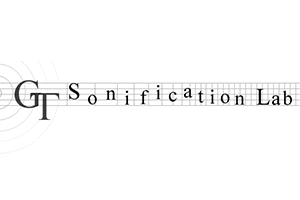Automated safety systems, a first step toward autonomous vehicles, are already available in many commercial vehicles. These are systems such as adaptive cruise control, which has the capability to slow down due to traffic, and automatic lane keeping, which maintains position within a lane without driver intervention. In order to ensure that these systems are properly used by drivers it is essential that they understand and appropriately trust the technology. We are currently investigating personal characteristics and driving environments that influence acceptance and use of automated safety systems and developing multimodal displays to increase situation awareness.

The Georgia Tech Sonification Lab is an interdisciplinary research group based in the School of Psychology and theSchool of Interactive Computing at Georgia Tech. Under the direction of Prof. Bruce Walker, the Sonification Lab focuses on the development and evaluation of auditory and multimodal interfaces, and the cognitive, psychophysical and practical aspects of auditory displays, paying particular attention to sonification. Special consideration is paid to Human Factors in the display of information in "complex task environments," such as the human-computer interfaces in cockpits, nuclear powerplants, in-vehicle infotainment displays, and in the space program.
[Random Image of Auditory Interface] Since we specialize in multimodal and auditory interfaces, we often work with people who cannot look at, or cannot see, traditional visual displays. This means we work on a lot of assistive technologies, especially for people with vision impairments. We study ways to enhance wayfinding and mobility, math and science education, entertainment, art, music, and participation in informal learning environments like zoos and aquariums.
The Lab includes students and researchers from all backgrounds, including psychology, computing, HCI, music, engineering, and architecture. Our research projects are collaborative efforts, often including empirical (lab) studies, software and hardware development, field studies, usabilty investigations, and focus group studies.


